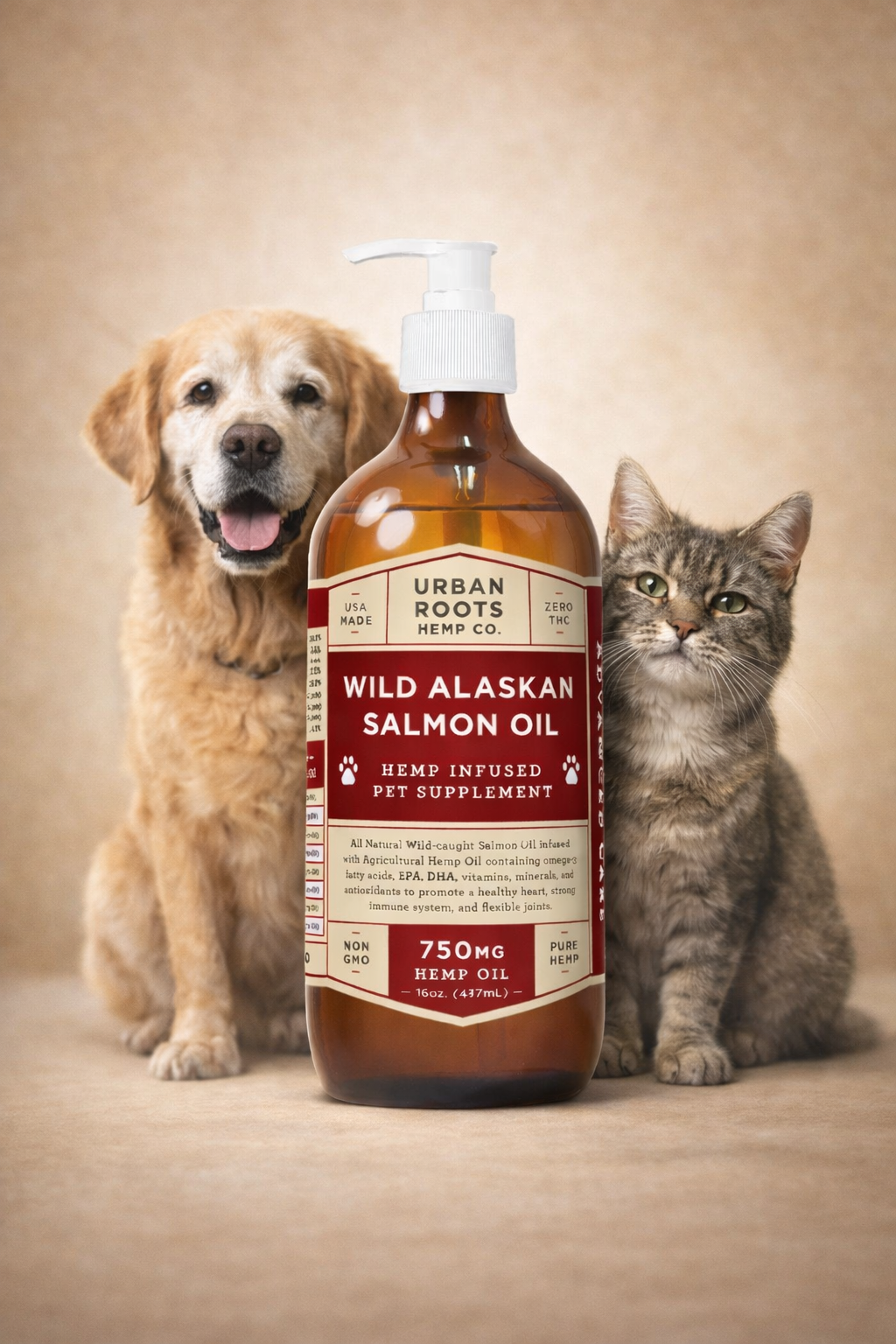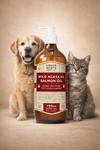How to Help Separation Anxiety in Dogs: Try Using CBD for Pets


Separation anxiety affects many thousands of dogs every day. Does your dog get nervous when he or she sees you getting ready to leave the house? Do they go completely nuts when you get home? Do they chew, tear apart, or otherwise destroy shoes, furniture, or other objects in your home while you’re gone? Do they go to the bathroom in the house if you’re gone for more than a few hours? If you answered yes to a few of these, then you might have a case of separation anxiety on your hands.
This condition essentially just describes a dog who is overly attached or dependent on you or another family member. When you or that family member leaves, it’s basically like the world is ending and they become extremely anxious. When you are home, they’re attached to you at the hip, following you from room to room all over the house; they often don’t even want to spend time outside without you right by their side.
All dogs love their owners (hopefully, at least). However, dogs should also be okay being along from time to time and shouldn’t feel the need to be a foot away from you at all times.
Signs of Separation Anxiety
Separation anxiety happens when a dog is hyper-attached to their owner and is very very stressed when the owner leaves. They will often engage in behaviors they never would do otherwise (like going to the bathroom inside when they are house-trained). Here are some signs your dog has separation anxiety and is abnormally stressed whenever you are gone:
- Howling, barking, or whining the whole time you’re not home
- Having indoor "accidents" even though he or she is housebroken
- Chewing things up, digging holes, scratching at windows and doors
- Drooling, panting, or salivating way more than usual
- Pacing, often in an obsessive pattern
- Trying to escape
Essentially, symptoms of this condition are nervous habits or behaviors that your pet would never do (or not do in the extreme) while you’re around.
How to Treat Separation Anxiety
The first thing you should do is talk to your vet. Some of the symptoms of separation anxiety might be the result of other health conditions, like infection or hormone imbalance. Some of them could also be the result of certain medications they are consuming. You and your vet want to rule out any underlying problems.
Once you determine the problem is separation anxiety, there are certain steps you can take to try to improve it. According to VCA Hospitals, two of the most important things to do are ensure your dog is getting enough activity when you are home and give them a predictable daily routine. The idea is to make sure they don’t have too much excess energy when you leave them alone, as well as to make them understand that you’re coming back every time you leave.
Here are some steps you can take according the VCA Hospitals:
- Establish a predictable routine – this will help calm them because they will learn when to expect attention and when to expect inattention.
- Environmental enrichment – when you are with your dog, make sure you are meeting all their needs for play, food, exercise, training, and bathroom.
- Establish a predictable protocol for rewards – With separation anxiety, you have to reinforce and reward your dog for settling down, relaxing, and showing some independence, while attention seeking and following behaviors should never be reinforced.
- Train them to relax – You want to train your dog to settle down on command (easier said than done, I know) with a word like “settle” or “relax”.
- Relax area – Give them a bed, crate, or mat location where they know to rest and be calm. If they associate this spot with being safe and relaxed, they can head there when you’re not home.
Can CBD Help Separation Anxiety?
Many pet owners have started using CBD to help their dogs with anxiety. Depending on your specific situation and animal, cannabidiol may be an excellent compliment to use in conjunction with the above methods we mentioned. CBD for dogs with separation anxiety is safe and is not known to produce any serious harmful side effects.
In case you’ve missed out on the craze in recent years, cannabidiol, or CBD, is a compound found in hemp and cannabis plants. It has become widely used by people (for themselves and for their pets) to help treat or improve chronic pain, anxiety, allergies, and even conditions like cancer, epilepsy, or digestive issues.
CBD has similar effects on our four-legged friends as it does on our own bodies. That’s because our canines, like ourselves, have an endocannabinoid system (ECS) capable of pretty amazing feats. In just about every vertebrate and invertebrate animal on the planet, the endocannabinoid system serves as a crucial biochemical communication highway that plays a critical role in regulation physiology, mood, and everyday experience.
The health benefits of CBD and other cannabinoids result from them tapping into this system and triggering cannabinoid receptors existing within the body. These receptors then stimulate changes; many of which result in positive health effects, like possibly reduced anxiety.
What We Know about CBD and Anxiety
While there is not much research looking into exactly how and why CBD may help canine anxiety, there have been several studies completed in regards to human anxiety. And like we mentioned when discussing the ECS, whether you like to think this or not, our dogs are not all that different from ourselves. We have largely the same organs, analogous diseases, and, often, similar reactions to drugs and substances.
It stands to reason that CBD will affect the majority of canines in at least similar ways that it affects that majority of people. If you’re interested in seeing the data and evidence we have for CBD’s ability to fight anxiety in humans, check out another article of ours, New to Cannabidiol: How to Use CBD for Anxiety.
CBD and Separation Anxiety
Despite the lack of completely sufficient scientific data, the availability of CBD in stores across the country and online means people are taking their pets’ health into their own hands. A survey published in the Journal of the American Holistic Veterinary Medical Association found that, out of 632 people, 72 percent reported using or having used a hemp product for their dog (and 104 tried it with their cat) and 64 percent felt that it helped their pets.
The best part is that CBD is completely natural and non-toxic, which means that you can try it for your pet without fear of hurting their health in any way. What we suggest is starting out with a small dosage, see how they react to it, and then, depending on how much it improves their separation anxiety or not, up the dosage slowly as necessary.
The truth of the matter is, if your dog is suffering from separation anxiety and nothing seems to help relieve their pain, you have nothing to lose by trying CBD. Attempt to change their behavior and create an environment that is conducive to remaining calm while you’re gone, but if they are still experiencing stress and anxiety, CBD may be the answer you’re looking for.
How to Give CBD to Your Pet
At Urban Roots Hemp Co., we have several products that make it easy to give CBD to your pet. We offer both CBD infused salmon oil and CBD pet tinctures that deliver the positive effects of cannabidiol you’re looking for.
The majority of our customers will put a few squirts (depending on desired dosage) of the salmon oil or a few drops from the tincture on their dog’s food each day. Others will put a few drops on their canine’s treats. If your dog is a bit too picky or taste sensitive to eat food or treats with CBD, you can simply pop a few drops in their mouth.
Another trick you can use is to distract your dog to get them past the “worst” part—when you’re actually leaving. Try mixing one of our products with a little peanut butter, put it inside a toy (one that’s made to have treats in it), and give it to them right as you’re heading out the door. This method is an effective way to get your pet to take a full dose and it will also keep them distracted for a little while. By the time they look up from the toy you are long gone, and the CBD will hopefully be on its way helping them to relax.
If you have any further questions about how CBD may treat separation anxiety, feel free to reach out!










